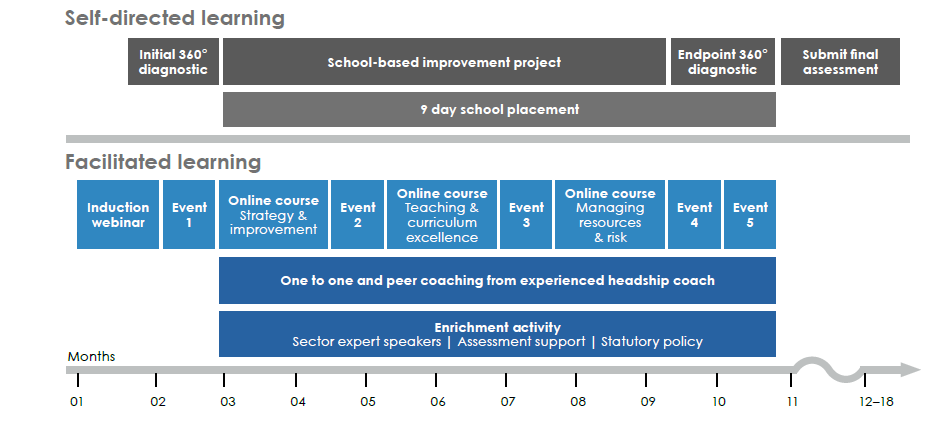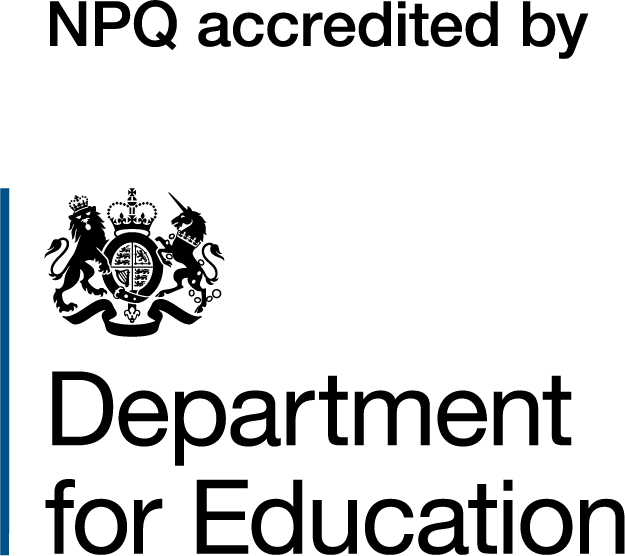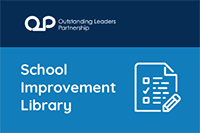National Professional Qualification
for Headship - Singapore



Singapore International Schools Professional Development Network – Autumn 2020
Singapore International Schools Professional Development Network are working in collaboration with the Outstanding Leaders Partnership to deliver the DfE’s accredited headship programme tailored to the needs of Singapore’s international school leaders.
The National Professional Qualification for Headship (NPQH) is accredited by the UK Department for Education (DfE). The qualification is delivered by the Outstanding Leaders Partnership, a provider of UK accredited qualifications for education professionals worldwide.
The National Professional Qualification for Headship (NPQH) is for those who are or are aspiring to become, a Headteacher, Principal or head of school with responsibility for leading a school. This includes those with cross-school responsibilities.
We were recently rated ‘Exceptional’ by the DfE’s quality assurance agent and voted ‘Company of the Year’ at the BETT Awards. We are the market leader, and to date have supported over 500 candidates from 60+ countries to access and complete an NPQ.
Who is this for?
NPQH is suitable for those who have recently been made head of school or who are highly motivated to become heads of school / principals, and no more than 18 months from applying for headship roles.
In order to be accepted onto NPQH, prospective candidates must first pass our gateway assessment process. Gateway assessment has been designed to ensure the readiness and suitability of applicants to undertake the qualification and embark upon headship.
Applicants must:
- be employed in a school setting outside of the UK
- have the support of your Principal
NPQH is taught and assessed in English and therefore requires all participants to be proficient in the use of the English language.
You can view our programme metrics here.
Benefits for candidates
- Time to reflect on leadership practice and to network with a wide range of school leaders
- Increased confidence to drive vision and improve standards
- Increased capability and capacity to take on whole-school responsibility and a strengthened ability to hold others to account
- Transferable qualification for leaders relocating to UK schools
- Contextualised to the needs of the international schools workforce and underpinned by robust evidence and expertise
- Masters credits towards an MA in Educational Leadership
Benefits for schools
- Support succession of school leaders and build a cohesive, impact-focused school leadership team
- A professionally aware and informed leader who can make evidence-based decisions and approach new challenges in an effective and efficient manner
- The ability to delegate responsibility effectively empowering staff to lead on whole-school improvement
- The ability to review and evaluate practice in order to bring about change and get the best for young people and staff within the organisation
Programme outline
Qualification Schedule
Qualification Content
The qualification covers 6 content areas which set out what a leader should know or should be able to do and 7 leadership behaviours which set out how the best leaders operate. The content areas have been embedded within 3 online courses, with the leadership behaviours explored during the face-to-face events.
Event Content
Each day is facilitated by two experienced facilitators and supported by a serving Headteacher.
| Event 1: Induction | • Qualification outcomes, process and schedule • Supporting your leadership learning • Effective leadership learning and development • Leading change for improvement: In-school leadership practice • Avenues of support for your leadership learning and development journey |
| Event 2: Strategy & Improvement | • Strategy & Improvement: Getting the foundation right • Check-in on leadership learning & practice • Self-managed task: Future direction and strategic development • Presentation to ‘the governing board’ • Modelling characteristics of team effectiveness |
| Event 3: Teaching & Curriculum Excellence | • School leader perspective: Vision & reality • Check-in on leadership learning & practice • Presenting my vision for teaching, learning and curriculum excellence • Self-managed task: Leading vision to reality • How leaders improve & demonstrate improvement |
| Event 4: Managing Resources & Risk |
• School Leader perspective: Ensuring school and staff accountability • Check-in on leadership learning & practice • Managing performance • Financial management: Effective & efficient resourced teachers • Personal reflection and plenary |
| Event 5: Readiness |
• School Leader perspective: What successful leadership looks like • Successful leader presentations • Powerful learning conversations • Assessment criteria in practice • Assessment: Supporting successful submission |
Online Course Content*
| Strategy & Improvement | Teaching & Curriculum Excellence | Managing Resources & Risk | |
| Module 1 | Context for change & strategic development | Context for change - teaching & learning reality | Financial efficiency & effectiveness |
| Module 2 | Creating the vision & strategic improvement environment | Creating the learning culture for effective teaching and learning and curriculum opportunity | Accountability & governance School-led partnership and impact |
| Module 3 | Establishing credible relationships & effective collaboration | Growing talent and quality momentum | Staffing recruitment, retention and performance |
| Module 4 | Transforming the culture for improvement & impact | Transforming lives and opportunities for improvement and impact | Transforming schools through school-led partnership and impact |
*Content has been contextualised to the needs of the international schools workforce and underpinned by robust evidence and expertise
Assessment
Task 1
Candidates must lead a change programme at whole-school level lasting at least two terms and aiming to improve pupil progress and attainment. Candidates must present the plan to the Governing Board prior to implementation and gather their feedback. A written account of the project covering the design, implementation and evaluation must then be submitted for assessment.
Task 2
Candidates are required to research a placement school’s current and/or projected resource and capability challenges and design an action plan to address these. The placement must be undertaken in a contrasting school to their home school (for example, by performance, pupil profile, geography etc.) and last at least nine working days. These can be spread across a number of weeks at the candidate’s discretion. Candidates must present the plan to their placement school’s governing board and gather their feedback. A written account of the project must then be submitted for assessment.
Project scripts and supporting evidence are assessed in accordance with a mark scheme provided by the DfE and are subject to national moderation.
In order to achieve NPQH candidates must:
- complete 3 online courses and associated core tasks
- engage with practice-based events
- pass final assessment within 18 months of starting the qualification
How is it delivered?
Candidates will usually complete the qualification within 12-18 months dependent upon the school improvement project they elect to undertake.
Programme delivery consists of:
- five training events
- three guided online courses working alongside peers
- regular online conferences to support and complement learning
- two 360° leadership skills diagnostics
- facilitation from experienced international school leaders
- dedicated online tutor to support project planning and provide pastoral support
- option to accrue credits to contribute towards an MA in Educational Leadership
Our blended learning model

What does it cost?
Available to schools in the Singapore International Schools PD Network at a reduced fee of just £2,635.




